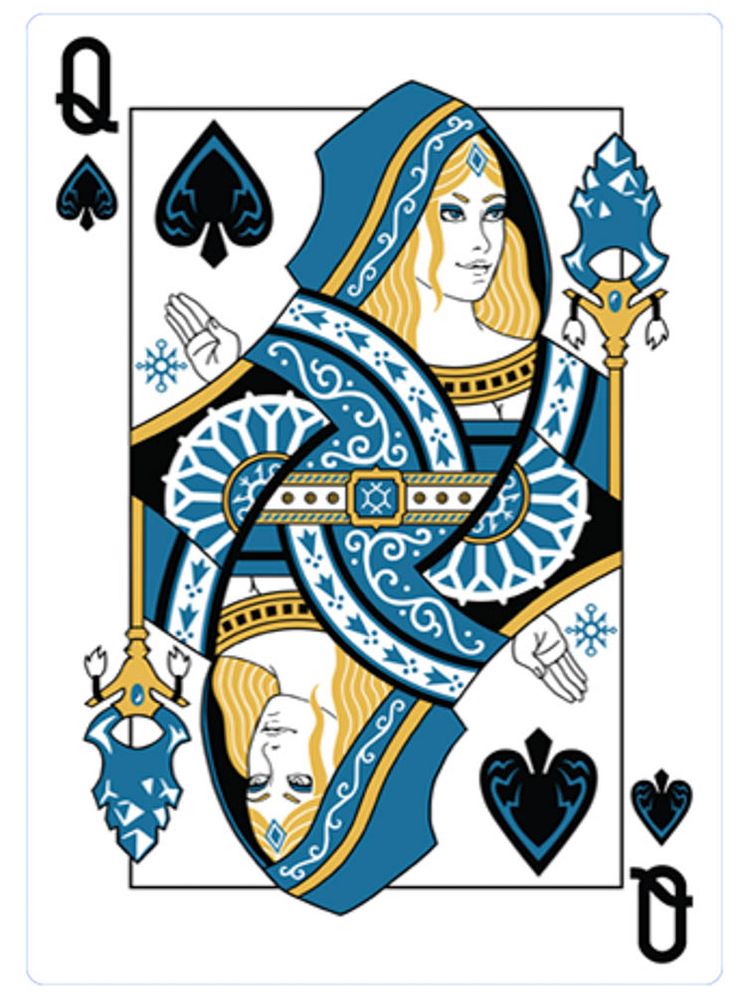Ignoring the lack of updates if the game is buggy, games back then were also more focused on quality and make gamers replay the game with unlockable features based on skills, not money. I can’t count the number of times I played Metal Gear Solid games over and over to unlock new features playing the hardest difficulty and with handicap features, and also to find Easter eggs. Speaking of Easter eggs, you’d lose a number of hours exploring every nook and cranny finding them!
Games were definitely buggy and I honestly think people forget how much better the quality is nowadays.
I also think there is something to it just being the 90s or so and not having much choice. If you only have one game to play then of course you’re going to replay it to death. If I have a steam library of 1000 games then I’m much less likely to.
A lot of this is just nostalgia for the past and the environment as opposed to games being any better.
There’s also the SNL effect. Everyone remembers the great games like Mario. Nobody remembers World Games.
World Games was so good they made a spoof sequel of sorts called caveman games. A lot of people remember world games, it was a well received game. You had so many actually forgettable garbage games to choose from…
But if he had to go with a forgettable game he wouldn’t have remembered it.
But he says it wasn’t very fun and it was forgotten.
He obviously didn’t forget it, and most people found it to be fun.
I have never heard anyone talk about that game, ever. But I remembered hating it as a kid. But social media wasn’t a thing back then. So I don’t know if it was talked about elsewhere.
If that was a well received game, I guess it speaks volumes about the rest of the NES library.
It’s because it wasn’t really a young kids game. It was aimed at a bit older of a crowd. They made a later version of it called caveman games that was geared more towards kids and it was a lot of fun, with mostly the same game mechanics.
I’m unfamiliar with that game. Was World Games buggy or just bad? The quality the OP referred to was bugs, not gameplay.
Even the worst AAA game today has better game play than anything from 30 years ago. It’s the nature of extreme complexity that allowing players freedom makes complete debugging impossible.
Hehe. World Games was an Olympic event type of game for the NES and other systems back in the late 80’s.
It was actually a well reviewed and enjoyed game, so I’m not sure why he decided to use it as an example when there were so many other actually bad games back then. It also caused a “spoof” game to be made on the NES called “Caveman games”, which did a similar game style, but set in caveman times with caveman events. I preferred caveman games as a kid, and still do. Racing against a friend on who can rub sticks together and blow on the smoke to make fire first is still a blast. So is beating the other guy with a caveman club. Good times.
Actually, OP very explicitly said to ignore bugs and was only talking about gameplay. Which is why they talk about extreme replayability being the requirement on old games.I just realized you were talking about who i responded to, not OP. But still, they weren’t only talking about bugginess.
The basic mechanics of a game (eg. Mario) better be fun, and those first couple of levels better be fun, because that’s what you’ll be doing a lot. It’s similar to how the swinging in Spider-Man better be fun because you’ll be doing it a lot. But the it also has more complex fighting, side content, and a story. You can mess up a lot more while there’s still enough to keep it entertaining.
But people don’t remember the majority of games that were not very good. World Games was just a game that came to mind on the NES as being not very fun, but more importantly forgotten.
deleted by creator
They weren’t as buggy. People making excuses classify exploits as bugs ignoring that modern games have more bugs and exploits.
I played Atari 2600 games like space invaders, adventure, and pitfall for thousands of hours without ever running into a bug. The only game with an exploit was Combat where you could put your tank muzzle into a corner and make it loop across the map. But both players could do it.
some games would be unplayable without hand-patching the code that you’d find in a magazine.
Nah, in the 80s we had hundreds probably thousands of games for the commodore 64 and later the amiga 500, all of them pirated. The piracy scene was huge, and often the games were free as we just copied them from friends
I’ve grown up with a PS1 and a handful of pc games, and I don’t remember any of them being any more bugged than modern gaming. The only exception being Digimon World 1, a notoriously buggy game (but to be fair, half of those bugs were introduced by the inept translation’s team).
I know people nowadays know and use a bunch of glitches for speedruns and challenge runs (out-of-bounds glitches being the norm for such runs), but rarely, if ever, those glitches could be accessed by playing through the game normally, to the point that I don’t remember finding any game breaking bug in any of the games I played in my infancy (barring the aforementioned Digimon World).
Yeah quality has improved massively, maybe not the initial release but 90% of games i recently played were regarded as buggy messes on release. After years of updates they mostly work.
I have 1000 games, but I still replay a bunch of them over and over, just at a less rapid pace.
I don’t agree with that first point at all. Games were not all that buggy, It was orders of magnitude better than it is now.
I think it’s because people only remember the good games and not the stinkers.
I played a lot of shit games I can’t recall because I played for 30 minutes max. There was one game I never passed the first level as I couldn’t figure out what to do, I think something to do with jelly beans and a blob. How is that good gameplay lol?
But of course myself and others can tell you about the games we played for hours like Super Mario Bros which didn’t really have bugs and were good.
The difference is back in the day the great games were the highly advertised “big ones” and the “stinkers” usually fell flat. Now you have a mountain of AAA stinkers and have to go scavenging for indie gems.
Not sure that’s right - before the internet I had no clue what was supposedly good or not. I’d rent games from blockbuster and just try them one by one. Lots of shitty games and I had no idea that Mario or sonic or anything was meant to be good.
Now it’s a lot easier just based on metacritic or steam reviews to figure out if something is good or not.
Well yes, maybe going that far back it was kind of a shot in the dark, but the late ‘90 to early ‘10 period was a time where you had internet (or at least tv/magazines) to know which games were “popular”, most of those were actually well done, and you’d rarely have an AAA title launch as a bugridden mess.
Reviews are also a hit-or-miss because they’re highly subjective. The Steam review system sucks as well, being only positive/negative and with troll reviews always at the top.
A boy and his blob! That was a great game! But it did not hold your hand at all, you had to figure out what every different jerky bean did to your blob. It was a good enough game that there was a modern remake I think it’s on Nintendo virtual console.
But yeah, that was a legitimately hard game for a kid. And with nothing, it wasn’t buggy, the gameplay was just different from anything else people were familiar with and it didn’t explain itself.
A couple years back I found my old Gameboy advanced. I tried to play Kirby on it and I was taken back by how much it sucked. The screen was way smaller than I remember it being and there was no backlight which meant I had to play the game in a well lit room. I don’t think I could ever go back to those days.
I also think there is something to it just being the 90s or so and not having much choice.
Absolutely. I enjoyed and played a lot out of King of Dragon Pass back in the day. Yesterday I sat down to finally play its spiritual successor Six Ages: Ride Like the Wind. From what I remember from KoDP it plays exactly the same (at least during the first hour). Yet I couldn’t force myself to keep playing it. Same way nowadays I can’t seem to get hooked with genres I used to play a ton as a kid: RTS games like Age of Empires II and Warcraft 3, life sims like The Sims, point & click graphic adventures like Monkey Island, traditional roguelikes, city builders, etc. Other genres I try to get back into and I do manage to play a ton of hours of but I’m never able to finish like when I was young (e.g. JRPGs)
When I try to play many of those games I tend to feel kinda impatient and wanting to use my limited time to play something else that I feel I might enjoy better. A good modern 4X game with lots of mod support like Stellaris or Civ6 instead of RTS games which have always felt a bit clunky to me. Short narrative games like Citizen Sleeper or Roadwarden instead of longer ones I’m not able to finish. Any addictive modern roguelite, especially if it features mechanics I particularly like (like deckbuilding and turn-based combat). If I ever feel interested to play a life sim or a city builder nowadays it has to feature more RPG elements and/or iterative elements and/or deckbuilding and a very compelling setting to me. And so on.
It feels like many of the newer genres (or the updated versions of old genres) are just more polished and fine-tuned than genres that used to be popular in the 90s and the 2000s. They just feel better to play. And to be fair in some cases they might be engineered to be more addicting, too. Like, I did finish Thimbleweed Park some years ago but I feel like nowadays no one is going to play witty point & click graphic adventure games with obscure puzzles if they can play a nice-looking adventure game filled with gacha waifus.
I mean technical wise, games are better now and could easily be patched, but I think that’s why games had better gameplay in the past to make up for the lack of gamer accessibility to patching.
You’re saying that because games couldn’t be patched, they had better gameplay? That makes no sense at all.
Lots of games had crap gameplay. There are more junk vintage games than good ones. The gameplay was simple because it had to be. The consoles didn’t have the power to do more. Chips were expensive. So they had to invent simple gameplay that could fit in 4k of ROM. If dirt simple gameplay is your thing, great. The Atari joystick had one stinking button for crying out loud.
You think Space Invaders has better gameplay than Sky Force Reloaded? Or Strider has better gameplay than Hollow Knight? You’re insane.
E.T. for the 2600 had gameplay so bad it crashed the entire video game industry.
Double Dragon on NES had a jump that was impossible to make forcing the company to make a new cart and give refunds.
There are more junk vintage games than good ones.
Anyone who has iterated though a full romset will agree with this.
Just like movies, music, books, etc. the classics are fondly remembered gems and the rest are easily forgotten.
Double Dragon on NES had a jump that was impossible to make forcing the company to make a new cart and give refunds.
I didn’t know this. This is obviously why I never finished that game and certainly not because I suck at it.
I might be misremembering what game it was. I was just a kid when I learned about it. I can’t seem to find anything about it other than an impossible jump in the PC port of TMNT.
It’s a nostalgia thing - I don’t remember the games where I got stuck on the first level and could never finish the game (which happened). Or were just boring so I quit after a half hour.
I do remember donkey Kong country, super Mario bros, sonic Etc. Which all worked well and were fun.
They didn’t need updates because they gave you the whole game, (usually) more-or-less bug-free, the first time!
That’s some survivorship bias shit right here. I can’t tell you how many shitty, buggy games I played in the days of early console and PC gaming. Even games that were revolutionary and objectively good games sometimes had game-breaking bugs, but often it was harder to find them without the internet.
Plus, don’t you remember expansion packs? That was the original form of DLC.
There are different kind of DLC, and the kind that’s similar to actual expansion packs is usually not criticized (or not by most).
Yeah, if a DLC isnt just content taken out of the main game (in a way that makes the main game worse) and is reasonably priced for the amount of content it contains, then it is a good way for developers to get paid for continuing development of a game after launch when it was already finished at launch.
The Witcher 3 DLCs for example were pretty good.
Oh man, while I was reading the first part of your comment I was thinking of the Witcher 3 DLCs the whole time, I’m so glad that you mentioned them at the end there!
Expansion packs were more complete experience than DLCs sold piece by piece.
I don’t see how the amount of “completeness” can even be measured. Is it really so much worse that you can buy extra fighters for the Street Fighter 6 that you already own rather than buying Super, Turbo, and then Super Turbo at full price every time? Or that you can choose to buy just the stuff you want for Cities: Skylines for half the price instead of paying twice as much to get stuff that don’t care about along with it? Plus, expansions like Phantom Liberty and Shadow of the Erdtree are bigger than most entire video games from the 90s.
THANK you. Fuck the upvotes, that person is objectively wrong. Maybe they just didn’t play that many games during the early PC/console era?
Console:
Except for when they did not, which was actually somewhat common.
But it also became quickly known, respectively stores stopped stocking buggy games. So in return, larger publishers tried their utmost to ensure that games could not have bigger bugs remaining on launch (Nintendo Seal of Excellence for example was one such certification).
But make no mistake, tons of games you fondly remember from your childhood were bugged to hell and back. You just didn’t notice, and the bigger CTDs and stuff did not exist as much, yes.
PC:
It was just flat-out worse back then. But we also thought about it the reverse way: It wasn’t “Oh this doesn’t work on my specific configuration, wtf?!” but “Oh damn I forgot I need a specific VESA card for this, not just any. Gonna take this to my friend who has that card to play it.”.
Even the concept of taking your game to a friend to play it is basically impossible today
How do you figure?
Counterpoint: budget re-releases of games (e.g. ‘Platinum’ on PlayStation) were often an opportunity to fix bugs, or sometimes even add new features. A few examples:
- Space Invaders 1500 was a re-release of Space Invaders 2000, with a few new game modes.
- Spyro: Year of the Dragon’s ‘Greatest Hits’ release added a bunch of music that was missing in the original release.
- Ridge Racer Type 4 came with a disc containing an updated version of the first Ridge Racer, which ran at 60fps.
- Super Mario 64’s ‘Shindou Edition’ added rumble pak support, as well as fixing a whole bunch of bugs (famously, the backwards long jump).
Those are just off the top of my head. I’m certain there are more re-releases that represent the true ‘final’ version of a game.
That’s the exception rather than the rule. If you have the opportunity to make some changes in a new batch, why not take it?
Generally, when the game was released, it had to be done. If there were any major bugs, then people would be returning their copies and probably not buying an updated release. It’d also hurt the reputation of the developer, the publisher, and even the console’s company if it was too prevalent of a problem.
I don’t think anybody I knew ever got an update to a console game without just happening to buy v1.2 or something. There were updated rereleases, but aside from PC gaming, I don’t think most console gamers back then ever thought “I hope they fix this bug with an update”.
This is just nostalgia.
Case in point, you can still play all of these old games. If you are willing to pirate, you can get access to thousands of games, most you never even played before, for free. You never have to pay for another game as long as you live and a still be playing new games from this era of “better” games.
I’ve done this myself. Played for like a month, and then for bored. And basically noone does that. I have the Nintendo switch access to old nes games. My kids never touch it. No one can really say because there is no novelty.
You know why? Modern games are way better. This isn’t to say these isn’t some annoying shit that goes along with them. But the old days weren’t some magical time of gaming. It seems magical because it was new, especially to the people living during that time, and simply due to nostalgia.
I know I won’t be popular, but I love modern gaming. I throw a game I’m interested in in my steam wish list. I wait for it to drop to below 20 dollars, and then I buy it.
The most recent games that I’ve put a ton of hours into are bg3 and anno 1800. No micro transactions, unless I missed something.
I also played a ton of supercell games: coc, cr, and bs. Many entertaining hours over years. Never spent a dime. Micro transactions other people paid allowed me to play for free. How is this not amazing?
I’m open to hearing competing ideas, but if you do you disagree with me, expect me to ask why you don’t do the things above, and just answer the question in your post. If that’s ignored, it will just indicate to me that you realize I’m right.
Good games are good games no matter the era. I don’t think you can find many serious people claim that Barbie’s Horse Adventures is better than Red Dead Redemption 2 just because it’s retro. And No serious person is going to claim that Suicide Squad is better than A Link to the Past, just because it’s a modern game
Agreed. Although that’s not what anyone actually says. Just read the comments in this thread. You would think they rdr2 was completely unplayable shit hole of micro transactions.
But what about rdr2 to link to the past? Removing the “considering the era” part of the equation, just 1 to 1.
I think it’s really hard to quantify. They are both masterpieces even if you just consider the state they are today and not just the era they are made in.
Sure Red Dead Redemption 2 has “better graphics” but Link to the Past looks great in its 16 bit art style. I wouldn’t want to change the graphics. I don’t think A Link Between Worlds or the switch remake of Link’s Awakening improved the graphics for instance.
Red Dead Redemption 2 might have “deeper” gameplay mechanics but I don’t actually care for them very much. The cores system I think distract from the game, and Arthur is honestly a bit slow and clunky to control during fights; unlike A Link to the Past where fighting with the sword is smooth, blocking with the shield is easy to understand and the items add a element of strategy to the combat.
Ultimately I think that red dead redemption 2 is the better game and part of it is because the modern era it is in allowed the developers to tell an story and create a character that I was invested in more than any other in gaming. But ultimately I think it comes down to personal taste. Earthbound is another game that made me feel similar to RDR2 as far as story beats go. And if I had to pick one game to play for the rest of eternity, I’d be fine with either choice.
Nice thoughtful reply where I think you mostly catch my feelings as well.
Competitive NES Tetris exemplifies this. The game was already retro when most current top players were fetuses, which completely eliminates nostalgia as a possible factor.
Depends a lot on the games for me. I can spend a lot of time on old games, if they were mechanically well made. But if the controls are clunky (like e.g. in old adventure games) I am out.
I think the early 3D era is the worst for this. We really had no idea how movement or cameras should work, and there was a lot of flailing trying to get it right, and people didn’t even realise when it was right.
I was there 3000 years ago when Alien Resurrection came out and you used the left stick to walk and sidestep, and the right stick to pan and tilt, and it felt like utter unplayable madness.
That’s one of the reasons Mario 64 still holds up. Despite being so early in 3D platforming it did a really good job with the controls and camera choices. It’s a real mixed bag to go back to that era of gaming, Generation V, but I kinda like that. There wasn’t preconceived notions of what 3D games should be so they tried everything.
I think everyone agrees that we leave early 3d games out of our nostalgia.
What was great is that we had more free time.
I also think there’s a genuine drop in satisfaction when people are presented with more options. I limit myself and only buy new-ish games when I feel like I’ve extracted as much enjoyment out of the last one I bought as I can. I think this helps a lot.
Because what I see a lot of people doing is jumping to the game-of-the-week and then getting numb and saying “there’s no good games” even as they continue to buy new ones every week.
No need to pirate. There is a shitload of games on the internetarchive: https://archive.org/details/internetarcade
We all have to be very specific about how you’re defining “better” here. To me, it’s people being very bad at explaining what they mean by it when they say that, making it easy to dismiss as nostalgia. I think you’re mostly right though.
People have become used to better graphics and smoother gameplay. You can’t go back after that. People like having other people to play with too. So, I think those are unfair criticisms. They mean, old style made with the new tech. However, there a whole host of things that have gotten better with modern games. I think we can agree on the last part at least.
Having lived through both, old games were not “better” per se but there is something modern games have lost, in amongst all of the improvements. Games “back in the day” weren’t made with algorithms designed to mess with your psychology to keep you playing, even if you hate the game. They didn’t design the games into evergrinds that only a few sweaty types and professionals can genuinely enjoy either. Old games had a logical, satisfying end where you would put them down afterwards.
Despite all the crap you get with old games, you can tell that so many of them were made to be as much fun as possible. Like, that was the main aim and not “engagement at all costs, even enjoyment.” They were labours of love, warts and all.
That’s why they’ll never remake morrowind as it was but with better graphics, mechanics etc. because it’ll be so apparent imo. I mean, you start off fighting rats in a basement with a toothpick and eventually end up being able to make game breaking gear, just for the hell of it. You had to earn it but it was just really fun. Powerstone 2 was just pure, silly fun.
Fun doesn’t generate as much permanent engagement as whatever the hell they’re using now. I’m not saying modern games aren’t fun, just to be clear. But they’re not made, from the ground up, to be as much fun as possible anymore imo. That’s what I think they’ve lost. But I agree, that doesn’t make old games better, despite their being so old.
Games “back in the day” weren’t made with algorithms designed to mess with your psychology to keep you playing, even if you hate the game. They didn’t design the games into evergrinds that only a few sweaty types and professionals can genuinely enjoy either. Old games had a logical, satisfying end where you would put them down afterwards.
Well, many old games were. Arcade games specifically were often designed to get coins from players, with extreme difficulty encouraging grinds and sweaty playthroughs to achieve mastery.
If anything, multiplayer and GaaS brought us back there.
Many new games, especially single player games, are still designed with “fun” in mind, or with even loftier goals and themes, many without exploitative gameplay loops, yet still with distinct, pleasing graphics, art styles, and polished gameplay.
I don’t think anyone was talking about arcade games but I agree that they weren’t excluded either. Even then, you had versions you could own that were very different.
The major labels have lost that and those that are built the way you describe are so few and far in between, they’re barely worth mentioning.
Games in general used to all be like that. Now, the vast majority have to gouge as much as possible. Again, I don’t agree they were better back then but its not improved in every single way either, when looking at them collectively.
A lot of times people use the word 'better 'when instead they should be using the word ‘prefer’.
People have become used to better graphics and smoother gameplay. You can’t go back after that. People like having other people to play with too.
This is what it ultimately comes down to for me: the games are better, and they can’t go back. If the games from back then were actually better, then people would be playing them all the time. But the reality is that people seem to pull more enjoyment from modern games, which is why they keep going back to them despite the constant “they suck!” complaints.
Despite all the crap you get with old games, you can tell that so many of them were made to be as much fun as possible. Like, that was the main aim and not “engagement at all costs, even enjoyment.” They were labours of love, warts and all.
And I feel that’s true now, like with the games I mentioned (BG3 and Anno 1800). And back then there were definitely cash grabs, like ET jumps to mind as the most famous example, but almost every NES game that was based on some kind of movie or other pop culture thing. It’s just they are better at grabbing cash now. But there are also plenty of modern games that don’t implement these addictive features, in order to keep siphoning money off of you, they are just fun and people play them infinitely more than going back to the olden days.
And, again, I don’t want people to get me wrong. I definitely agree that there is a lot of shit, especially dirty shit, where they abuse human psychology to keep people playing and siphoning off money. But I feel like it’s ridiculously overstated and people are also ridiculously blind to how much better gaming is now than it was “back in the good old days.”
I am in full agreement with this statement, and would like to add that I think that older games often have a much greater artistic value. They were concerned with crafting an intricate plot, super immersive environments, powerful and transformative music, memorable characters, etc. One game where in my opinion you really feel the volume of love and artistic expression as well as perfectionism put in is the first Risen, and it’s fairly obscure, but I find it to be so captivating that I’d easily play it with greater enthusiasm than any new Ubisoft copy-and-paste title or Valorant / Overwatch / CS:GO. Still, I think that this art / passion approach of quantifying a game’s “goodness” produces just as many contemporary candidates for great games, like The Witcher 3, Baldur’s Gate 3 or Red Dead Redemption 2. The things I like about old RPGs / adventure games are probably not specific to the past, but instead heavily developer dependent. Developers that love their work and are given enough time and money will produce great works of art in the same way that they have 20 years ago.
I somewhat disagree about being “unable to go back”, but I will say it’s sheerly the style of game itself.
Take a game like A Link to the Past. Now look at a game like Retro City Rampage. Despite some 30+ years difference, they are visually nearly identical. Or any of the 2D Sonic games, them being 30 years apart is effectively meaningless.
But yeah, trying to play old Tomb Raider? If you’re expecting even PS3 graphics, boy are you in for a surprise.
However I think there is also an annoying amount of push for “better graphics or bust”. That was the main debate for the console wars, the Wii sucked because its graphics weren’t good and it’s a baby console, Gears of War and Lost Planet for the XBox are the pinnacle of gaming!1! What! No the God of Wa- sorry I got caught in a flashback.
But there are plenty of games you can emulate that can be upscaled and remove the archaic visuals, then it’s just the game design and control scheme. Red Dead Revolver looks and plays great, there’s no reason for anyone to stop playing outside of it just being a little less “AAA”. Similarly, pretty much any of the PS2 exploration games - Jak and Daxter, Spyro, Sly, Ty, Crash - hold up wonderfully today. They’re a bit slower, but they are the foundation that modern games of that genre use.
I don’t think them being slower, clunkier, less “AAA” makes them bad games. I think it makes them older games, and that is not inherently bad. In fact, I would argue that it’s gamers being bad at them, and that games today in many ways are easier to keep people engaged. The D&D arcade game is great, difficult, and would be absolutely dunked on by gamers today for all of its awkward gameplay.
This reminds me of an article I read about “Blade Runner, and old movies in general, are harder to watch because contemporary audiences have gotten used to movies that are faster, which makes them better.” The whole article was effectively trying to state that because new movies have shaped audiences, old movies are becoming unwatchable. In some respects, I’m sure there’s merit to that. In many other respects, I completely disagree. Just because something is in a different language does not remove its value. I see that as a reflection of the viewer, not a reflection of the art.
With that in mind, old video games are a different language. We have to play them with the mindset that things will not be familiar. That does not make them bad, it makes them something to learn, and it’s going to force you to learn things that are uncomfortable because it’s unfamiliar to what you would rather be doing. Old movies are a different language.
Just because you may not understand it does not mean it is worse. Likewise, just because you are familiar with modern games doesn’t make them better either. And finally, better is subjective for the most part anyway. (None of this is directed at you btw, lol not at all trying to say that you don’t understand things!)
I mean, I do still play these games. I also play new games, so I don’t agree with the comic. Still, Chrono Trigger, FFT WoL, Secret of Mana, Parasite Eve, Xenogears, and some others are still on my PS Vita and I’ve been replaying them. I need to find Megaman X as well, as I loved that game.
It’s available on Steam, as well as the Zero series of games.
… I’m an idiot. I bought it on switch already. Time for a replay!
@EatATaco @TankovayaDiviziya I somewhat agree.
But there is also how games have aged over time. Some game mechanics still work and are fun.
I just recently bought “Populous” on steam for 2$. After learning how to use DosBox the game is still as addictive as it was on my Atari-STE … but now I have bad old PC sound.
Compare this with “Command & Conquer Tiberium Wars” I should have skipped buying that. The conversion is so faithful that it still has the same stupid unit movements.
I just recently bought “Populous” on steam for 2$.
It’s funny because I was explicitly thinking of populous at some point when thinking about replayability. What a great game. Although I played it on SNES. Countless hours on that game. Almost as bad as Tetris.
I regularly play 90’s and 00’s FPS games. All the new release ones I play follow old design philosophies with the hindsight of knowing what doesn’t work. There’s not much in the way of modern, triple-A FPS titles without some form of microtransactions or whatever the hell “seasonal content” is. I wont touch anything that’s a “live service” game. Hell, Epic shutdown the Unreal Tournament servers and even delisted the single player stuff.
Just curious which games you are playing and if they are on servers. That being said, I’ve had a ton of fun playing battlebit.
Kinda just game up on multiplayer. Right now, I’m replaying Postal Brain Damaged. The last episode is so good. Probably do Turbo Overkill or try and get American McGee’s Alice running.
My old lan party friends are playing some BF game or another. I tried military shooters, but they’re all so flat. I think they were more interested roleplay then combat.
I collect games, mostly PS2 and PS3, and you’re largely correct. Games from back then had just as many issues, we were just more willing to look over them.
Skill issue on your part, you got duped by pretty lights. Super Mario is to this day playable. Megaman X is still one of the thightest platformer games ever made, the controls nearly feel like they read your mind.
Also notice how the few games that are better than these classics were either made by the same people (Igarashi’s “Bloodstained” reboot of Castlevania) or were HEAVILY inspired by them (Hollow Knight, Shovel Knight, 30XX etc)
How on earth could you conclude from my post anything about my gaming skill?
It is just nostalgia. Like it or not, that’s the first gamers’ generations saying “everything was better in the good ol’ days”. It was not, we just choose to remember the good stuff.
Its the same with film and anime ,probably also aplies to comics and books Everyone remembers a few good titles from the ‘old times’ ( and the old times depend on the person complaining ) and comapres it to every modern production convieniently forgeting about the garbage and medicore stuff that was put at that time.
And then there is the case of some genres falling put of favor. Whetewer we are talking about western in film or RTS in computer games . That actually is pretty reasonable complain since the way it usualy goes we have a massive oversupply of certain genres followed by a drought because as it turns out there is a limit to how much harem school anime horny teenagers and middle aged corporate workers will watch per year.
games back then were also more focused on quality
This is selection bias. You remember Metal Gear Solid, but do you remember Iron & Blood: Warriors of Ravenloft? Do you remember Mortal Kombat Mythologies: Sub-Zero? Bubsy 3D? The million-and-one licensed games that were churned out like baseball cards back then?
and make gamers replay the game with unlockable features based on skills, not money
If we’re going to say that a full-price game today costs $70, Metal Gear Solid would have cost the equivalent of $95. Not only that, but that was very much the Blockbuster and strategy guide era. Games would often have one of their best levels up front so that you can see what makes the game good, but then level 2 or 3 would hit a huge difficulty spike…just enough to make you have to rent the game multiple times or to cave in and buy it when you couldn’t beat it in a weekend. Or you’d have something like Final Fantasy VII, which I just finished for the first time recently, and let me tell you: games that big were designed to sell strategy guides (or hint hotlines) as a revenue stream. There would be some esoteric riddle, or some obscure corner of the map that you need to happen upon in order to progress the game forward. The business model always, at every step of the medium’s history, affects the game design.
“Value” is going to be a very subjective thing, but for better or worse, the equivalent game today is far more packed full of “stuff” to do, even when you discount the ones that get there just by adding grinding. There are things I miss about the old days too, but try to keep it in perspective.
“Value” is going to be a very subjective thing, but for better or worse, the equivalent game today is far more packed full of “stuff” to do, even when you discount the ones that get there just by adding grinding. There are things I miss about the old days too, but try to keep it in perspective.
Exactly this.
Games back then were pricier - once you account for inflation.
Games back then did expect you to pay extra - in fact quite a few were deliberately designed to have unsolvable moments without either having the official strategy guide or at least a friend who had it who could tell you.Games back then were pricier - once you account for inflation.
That’s commonly said but ignores other economic factors such as income, unspent money, and cost-of-living.
Though lots of things are better now: the entire back-catalogue of games, more access to review/forums, free games (and also ability to create your own games without doing so from nothing) etc. Aside from when video store rental was applicable, early gaming was more take-what-you-can-get (niche hardware/platforms might still have that feel somewhat).
That’s commonly said but ignores other economic factors such as income, unspent money, and cost-of-living.
Inflation is derived by indexing all of those things. Some things are far more expensive or far cheaper relative to each other, but we approximate the buying power of a dollar by looking at all of it.
Games back then were pricier - once you account for inflation.
This has always been a weird argument to me. Did wages go up to match inflation? If not, they’re not actually getting any cheaper.
The median US household income in 1998 was $38.9k, and today it’s $77.3k.
a few were deliberately designed to have unsolvable moments without either having the official strategy guide or at least a friend who had it who could tell you.
Do you have an example?
I knew kids that bought strategy guides, I worked at a game shop that sold strategy guides, and as far as I could tell they were for chumps. People who has more money than creativity.
Cosmetic DLC feels like it’s for chumps too, but it’s lucrative. The best example is going to be Simon’s Quest, without a doubt. The strategy guide was in an issue of Nintendo Power. I’m sure they were also happy to let social pressures on the playground either sell the strategy guides or the game just by word of mouth as kids discussed how to progress in the game. A Link to the Past is full of this stuff too. The game grinds to a halt at several points until you happen to find a macguffin that the game doesn’t even tell you that you need. Without the strategy guide, you could end up finding those things by spending tons of hours exploring every corner of the map, but by today’s standards, we’d call that padding.
There’s just so much everything now a days. There’s tons of great new music and tons of great new games buried in all the new stuff thats being pumped out that it’s hard to find the gems. There’s lots of passionate people out there taking the time and effort to try and make the best
Son, are you crying?
I forgot about hint hotlines. They’d charge per minute and did everything they could to keep you on the phone. I called a hotline once and my parents weren’t too happy about it.
The good thing was that games were complete and they didn‘t try to suck ever last penny out of you post-launch. Also, no updates meant they actually couldn‘t just ship them broken and fix later…
But it did mean they would ship them broken with no chance of fixing them, tbf.
That only happened extremely rarely. Nowadays it seems to be almost mandatory, precisely because the mindset is that they can just fix it later
That happened like, 6 times.
I can literally only think of a handful of games that had serious bugs.
There was that ninja turtles game for nes with the impossible jump, there was enter the matrix for PS2/xbox that was completely not done. There were a few games that were poorly conceived in the first place like ET for Atari…
But yeah, what else had serious bugs?
There isn’t a single game without bugs
WrestleMania 2000 on N64 had a bug that would randomly delete all saved data.
There was plenty of terrible, buggy games you just didn’t see because stores would drop them. PC had it far worse than console did back in the day. I think it’s also that games are just way fucking cheaper now, adjusted for inflation a SNES game was around 120 bucks and a PS2 game was around 75 bucks.
I just don’t see how games that don’t meet QA requirements and subsequently aren’t shelved are in any way comparable to every game on the market today…
I mean I never had to encounter those bugs, games that weren’t shelved didn’t exist in any meaningful way because nobody spent money on them. But
nearly everyprobably half of the games I buy and play today have serious bugs on day 1 (and many still have them on day 300). That feels like a different paradigm to me.
Still happens, used to be rare
Tekken used to have more than half of the characters HIDDEN. Now they just sell them one by one.
Well the new Tekken games launch with more and more characters, besides 7 which did launch with less than 6, and if you consider that the price of games has gotten cheaper due to inflation since the first Tekken it starts to make sense that they’re trying to make more money off them. Games have been costing more to make while costing less to buy for decades now and the industry is reaching a point where that’s become unsustainable but people just won’t accept a larger sticker price and longer development cycles so studios are finding new ways to make money. Personally I think selling characters as they come out for a few bucks is actually not a bad thing in fighting games, it keeps the games alive and interesting for much longer so long as it’s done well.
deleted by creator
Yeah. I mean there was shitty stuff back then, of course.
Arcade games, games designed to not be beatable without their guides (it’s why moon logic is a concept in the first place), that kind of stuff. But it’s a whole different level nowadays.
The game was about the game. Get off my lawn.
You didn’t have to deal with random re-balancing changing your gameplay, spying and tracking embedded in everything, hackers ruining the game or targeting you, invasive DRM (consoles), being forced to update your system for an hour before you can play, being forced to sign up for bullshit accounts in order to play the game you just bought, games that have required updates the day they come out, your games disappearing forever because the publisher changed their mind and removed it from the store, game content being removed to sell as DLC instead, being pressured to link social media accounts, bigger companies buying the game and forcing you to use their services to play it, companies monitoring and recording player interactions, companies going under making it impossible to play the game you already bought…
Holy shit. I never realized how bad modern gaming has gotten.
Modern AAA gaming, this is like complaining that all movies are copy+paste superhero flicks because that’s all you see at the cinema!
I think that’s a fair point.
A lot of my favorite games are indie titles or from small dev teams.
I did a post a while back, it’s a great time to be playing games even if you have to ignore a lot of crap
Fucking capitalism. Ruins everything. Including, according to studies of divided Berlin; sex.
Maybe I am old, but having no micro-payment bullshit is what made gaming better.
Never been to an arcade, eh?
Yeah, but Arcades are Arcades. They were also not really a thing in Germany (because they are 18+ in Germany). I only ever used them on vacations.
My point is that they are representative of how gaming used to be. Good on Germany for treating addiction-based money-extractors as what they are though!
Not really a microtransaction as much as a leasing payment
I’d say they’re both microtransactions, just one is full-on pay-to-play
You could buy most of those games for console though…
The cheap downgraded version, yes
Not before consoles existed you couldn’t!
there are plenty of modern games without micropayments, play smaller indie titles.
Or indeed some bigger games not from shitty publishers.
God of War, for example. A lot of Sony’s exclusives (and many are now on PC) are completely MTX-free. Even EA’s It Takes Two was free of them.
The issue is that they don’t make the return on investment that an exploitative multiplayer game does. So the big publishers prefer to make those.
It takes two is actually one step further, only one player had to own the game. It takes two had what was called a friend pass which as long as you weren’t the host of the game allowed you to play with any other player that had already purchased the game. So despite the fact that it was forced Co-op either split screen or online, only one player had to actually buy the game.
In this day and age it blew me away when I learned that because it’s just unheard of now.
The level of quality and number of bugs depends a lot on the era you’re talking about, as well as the platform. As a PC gamer from the 90s, much of my technical literacy came about from trying to coax games to work. My experience with console gaming was usually much more hassle free, though I have far less experience with it and don’t have a modern point of comparison (last console I even used, not even owned, was the PS3).
My real point of “it was better in the old days”, is the industry learning to exploit addiction. It’s everywhere, and it’s not just gambling. The longer you play the more likely you are to pay so even without loot boxes and the like, games are taking as much out of casino playbooks as possible. It’s fucking revolting and should be criminal.
As someone who has had problems with addiction of various kinds in the past, it’s so blatant to me. I can feel it playing into my vulnerabilities and it makes my blood boil. I avoid most gaming these days because I know if I let it become a habit, the next time life knocks me down I’ll fall victim to this.
As a PC gamer from the 90s, much of my technical literacy came about from trying to coax games to work.
Kids these days have no idea how easy they have it. Tracking down a driver update or patch (that you just moved to an unencrypted folder) on a dial-up connection? Re-installing your OS from a series of floppy disks because something broke, again? Limiting clock speed because so many things were tied to CPU cycles and wouldn’t function on new hardware?
PC gaming was a nightmare but you put up with it because StarCraft or Quake 3 online was dope as hell, we had Diablo and Myst and Half-Life and Doom and Putt-Putt Goes to the Goddamned Moon so it was all worth it.
Limiting clock speed because so many things were tied to CPU cycles and wouldn’t function on new hardware?
I remember the day I learned this lesson.
Young gamers don’t know the pain of a BSOD and the interminable wait getting back into game on an IDE hard drive. Even a CTD was a nightmare.
This is restricted to a small part of modern gaming, though. In indie games, for example, you find none of these exploitative practices (talking in general, of course) and get wonderful, masterfully crafted works of art by people who do game development out of passion (also speaking in general, of course).
This is restricted to a small part of modern gaming, though. In indie games-
Yeah, no, maybe the fact that you had to immediately jump to indie games should have been a hint that it’s not a small part.
Could do without online play.
I do go without. The only time I ever play online is playing PvE games with my good IRL friends that live in different countries and states now, and that’s maybe twice a month.
No randoms, no tantrums when we make noob mistakes, no toxicity. When my friends aren’t around, I play single player games or play with bots instead of people. I highly recommend it.
deleted by creator
Give Tunic a try. The in-game manual is a central piece of its overall puzzle.
Tunic is great! The dev said he wanted to replicate the experience of playing a game in a different language that you don’t quite understand at first, and he made it perfectly. English is my second language, and it reminded me of the times trying to play games before I understood it, struggling with manuals and dictionaries.
The special edition comes with a physical manual, but ironically the player shouldn’t open it until they 100% the game. It’s like a spoiler.
This is me in Italian. I don’t know why it never occurred to me that anyone would experience the same with English, but knowing about it makes me feel so much better.
The amount of depth in that game is mind blowing. It’s funny reading reviews/comments of people complaining about the rewards for the secrets that make it obvious they got the solutions online. Figuring out the secrets IS part of the reward!
Manuals?
Don’t you like logging into the same game 6 months later and the entire game mechanic and progression system have been changed???
If you want to read some manual you know where you can.
Most people don’t know about, or don’t remember, the old bins filled to the brim with garbageware games. Back when shit was still the wild west and people were releasing crap left and right.
just buy indie games lol
Those have manuals you can read on the ride home?
Actually there is a company called limited run games I think that goes all out and prints physical copies of some indie games with instructions and bonus stuff. It’s pretty awesome but takes a while to get it.
Ok that is pretty awesome
These days I’m driving on the way home.
I do miss manuals though.
The appetizer before the main course.
I think you can probably still get them for some modern games that were crafted with passion, through special editions and box sets. I think that the standard store edition of Total War: Warhammer actually came with a manual as well as a novella, and this was coincidentally the last physical copy of a game I bought.
Game updates bring bad with the good, because devs often rely on them to deliver a full, playable game.
When you bought a game back in the day, you got a full, playable game on the media. It wasn’t always bug-free, because… you know… it’s software, but they had to at least quash all the showstoppers without the benefit of a Day 1 patch.
And don’t get me started about DRM…
They were also much simpler and smaller back then with often extremely limited specification variations. And DRM existed back then too, with some fairly egregious and infamous physical DRM checks.
When you bought a game back in the day, you got a full, playable game on the media
ET would like a word…
Fair, but ET was such an awful debacle that it killed Atari as a company and paved the way for Japanese companies to take over the entire market for the next couple of decades.
Now it’s just business as usual.
I loved reading through the manual for Morrowind with the copy we got on the original XBox. I read all the class descriptions, details about the schools of magic, and had a whole character planned out before starting the game. I didn’t get into tabletop gaming until much later, but looking back, that manual really captured the same feeling of reading through the D&D players handbook and picking out a race, class, background, etc.
I think that feeling is why it’s still my favorite PC game.
This was my exact experience. I read the book and looked through the map it came with. Morrowind was the game that caused me to change from FPS and Sports games to RPGs.
Ahh, the maps were so good. I remember using the extremely detailed hand drawn map to help me locate the Cavern of the Incarnate, and other cool locations. I am sad that I didn’t keep them.




























